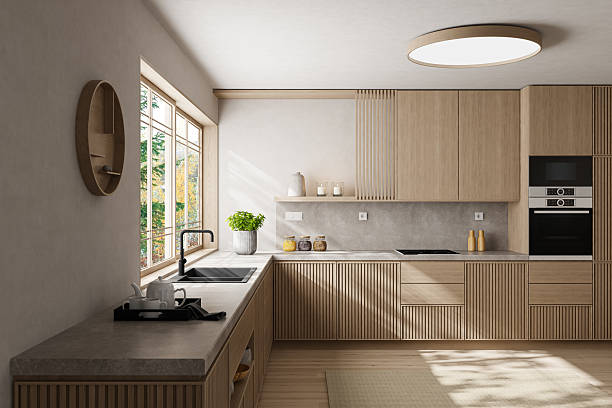Para compradores mayoristas que buscan accesorios de cocina, Comprender el proceso de galvanoplastia es fundamental para garantizar la durabilidad del producto., atractivo estético, y valor a largo plazo. Como demanda de gabinetes de acero inoxidable de alta calidad. manejas, diapositivas del cajón, bisagras, y crecen las cestas del fregadero de la cocina, Los proveedores deben priorizar las técnicas de fabricación avanzadas para satisfacer las expectativas del comprador.. Este artículo profundiza en el flujo de trabajo de galvanoplastia., destaca puntos de referencia de calidad clave, y explica por qué este proceso es importante para la adquisición al por mayor.
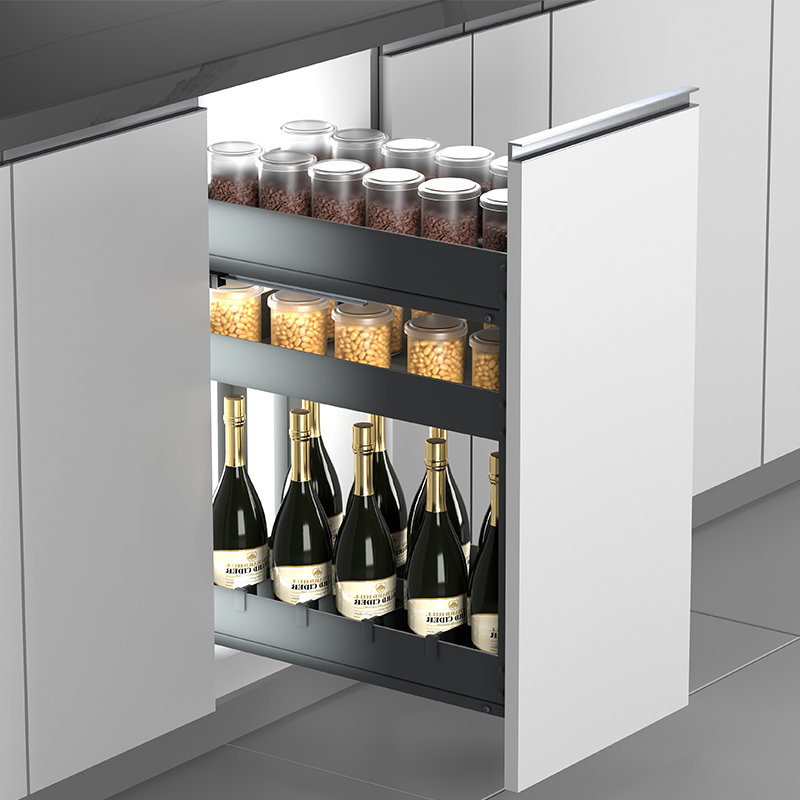
Por qué es importante la galvanoplastia para los accesorios de cocina
galvanoplastia Es un método de tratamiento de superficies que aplica una fina capa de metal. (P.EJ., cromo, níquel, o zinc) a componentes de ferretería de cocina, mejorando su resistencia a la corrosión, arañazos, y uso diario. Para compradores mayoristas, esto se traduce en:
- Vida útil extendida del producto: Los acabados galvanizados protegen contra la humedad y los productos químicos comunes en las cocinas..
- Consistencia estética: Los revestimientos uniformes garantizan acabados pulidos en elementos como perillas de gabinetes o tiradores de electrodomésticos..
- Rentabilidad: Los revestimientos duraderos reducen las devoluciones y los reemplazos, mejorar la confiabilidad de la cadena de suministro.
El proceso de galvanoplastia: Desglose paso a paso
Para cumplir con los estándares de proyectos de cocinas comerciales y renovaciones residenciales., Los fabricantes de renombre siguen un meticuloso flujo de trabajo de galvanoplastia.:
- Preparación de la superficie
- Desengrasar: Elimina aceites y suciedad de crudo. materiales (P.EJ., acero inoxidable o aleación de zinc).
- Pulido: Superficies lisas para eliminar imperfecciones antes del enchapado..
2. Baño de galvanoplastia
- El sustrato se sumerge en una solución que contiene iones metálicos. (P.EJ., cromo).
- Una corriente eléctrica une los iones a la superficie., creando una capa resistente a la oxidación.
3. Post-tratamiento
- Pasivación: Mejora la resistencia a la corrosión de las manijas de los grifos de la cocina o los coladores del fregadero..
- Caza de focas: Fija el revestimiento para evitar que se pele o decolore..
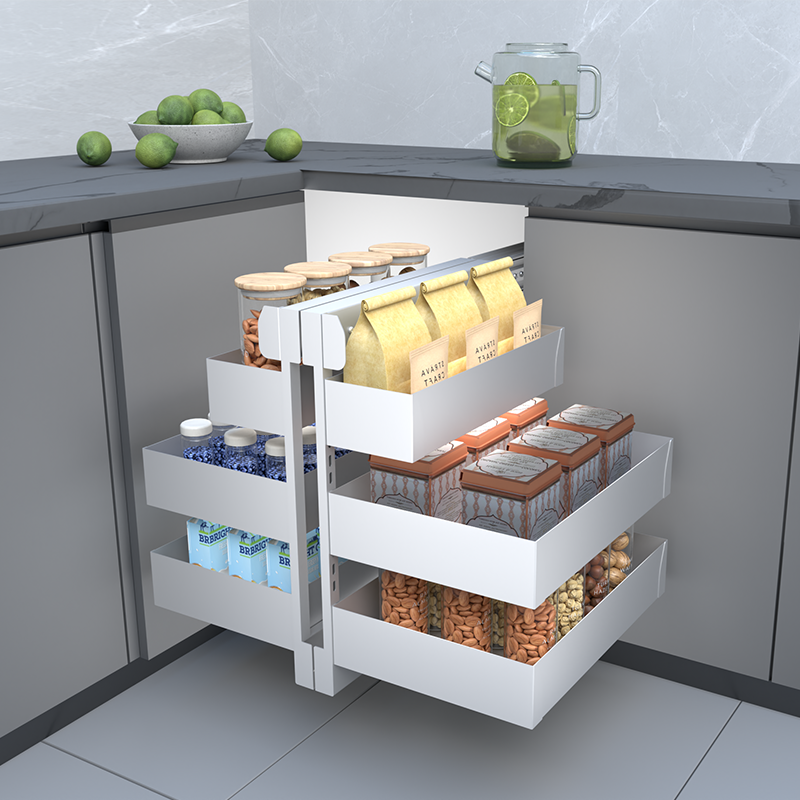
Controles de calidad clave para herrajes de cocina galvanizados
Los compradores mayoristas deben verificar estos puntos de referencia al evaluar a los proveedores.:
- Prueba de spray de sal: Mide la durabilidad del recubrimiento (P.EJ., 96+ horas para guías de cajones premium).
- Pruebas de adherencia: Garantiza que el revestimiento no se descascarille bajo estrés..
- Uniformidad del espesor: Crítico para componentes como soportes para manijas de hornos o barras para toallas..
Para la punta: Asóciese con fabricantes que sostienen YO ASI 9001 o certificaciones RoHS para garantizar el cumplimiento de las normas internacionales de seguridad.
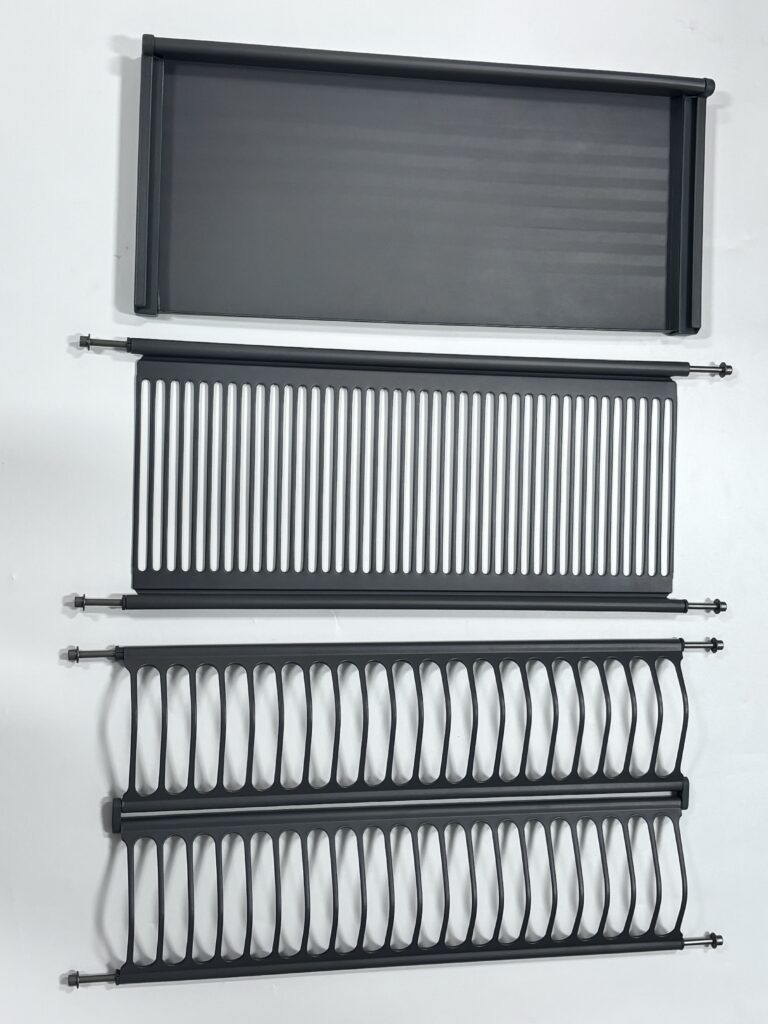
Tendencias del mercado: Lo que los mayoristas necesitan saber
- Acabados resistentes al óxido: Los compradores dan prioridad a las bisagras y perillas de gabinetes de cocina galvanizadas para ambientes húmedos.
- Personalización: La galvanoplastia permite variaciones de color. (P.EJ., negro mate u oro cepillado) para alinearse con diseños de cocinas modernas.
- Prácticas ecológicas: Los proveedores que utilizan cromo trivalente en lugar de hexavalente reducen el impacto medioambiental.
De acuerdo a Inteligencia de Mordor 2024 Informe de mercado de hardware de cocina, La demanda de bisagras galvanizadas resistentes a la oxidación en regiones húmedas ha aumentado en 18% interanual.
Elegir el proveedor adecuado de accesorios de cocina
Al adquirir ganchos de acero inoxidable, soportes de estante, o organizadores extraíbles, priorizar a los socios que:
- Oferta Servicios OEM/ODM para líneas de productos a medida.
- Proporcionar especificaciones detalladas de galvanoplastia. (espesor del recubrimiento, materiales utilizados).
- Mantenga políticas transparentes de MOQ y precios al por mayor para mayoristas.
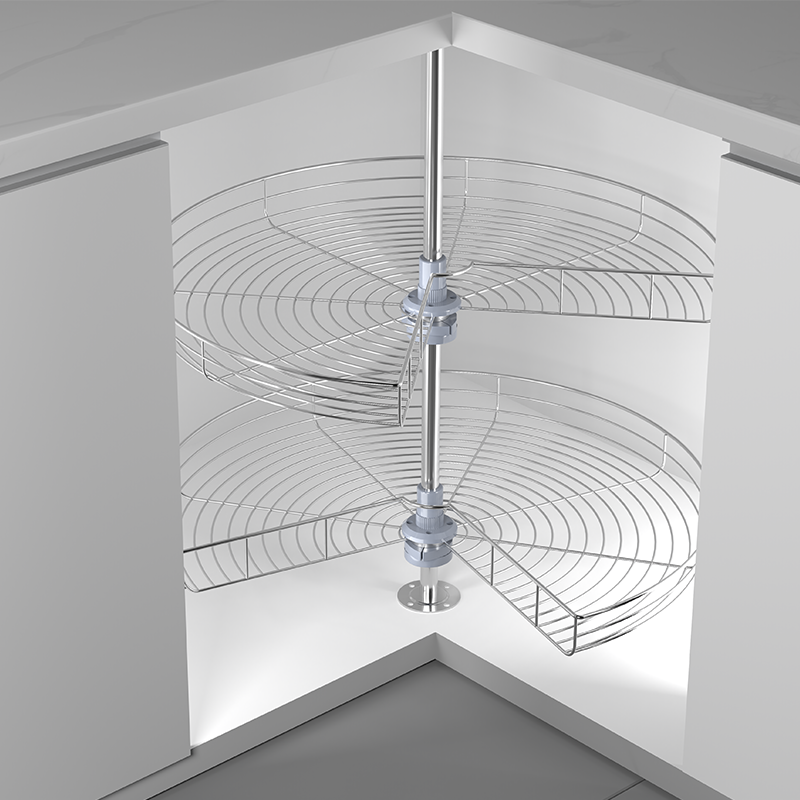
Conclusión: Aumente su inventario con soluciones de cocina electrochapadas
Para mayoristas de herrajes de cocina., La galvanoplastia no es sólo un paso de fabricación: es una ventaja competitiva.. Al asociarse con proveedores certificados quien domina este proceso, asegurarás duradero, Productos visualmente atractivos que satisfacen la demanda global.. Ya sea suministrando sistemas de cocina modulares o hardware de repuesto, Comprender la galvanoplastia garantiza que su catálogo se destaque en confiabilidad y estilo..


